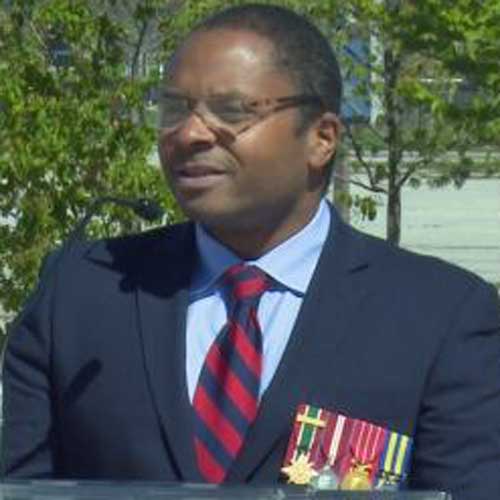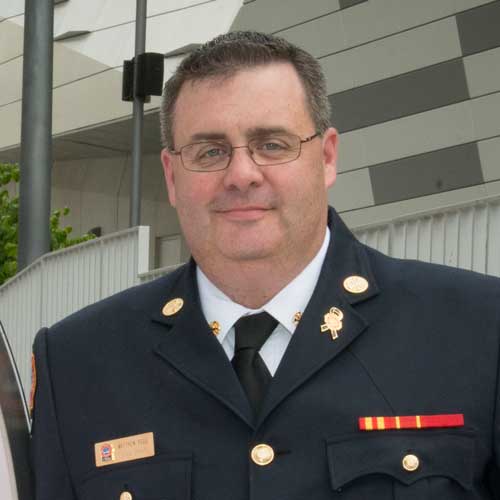Day One: Tuesday, January 28, 2020
08:00
60 minRegistration and Continental Breakfast
09:00
15 min09:15
45 minBCP CASE STUDY: Prioritizing Critical Services in a Large Complex Organization
Adrienne Turnbull, Defence Scientist, Defence Research and Development Canada
- Establishing a prioritized list of critical services
- Is everything a critical service?
- Determining criteria for criticality based on time
- The challenge of reconciling the subjectivity of multiple parties where everyone thinks they’re critical
- How science can complement business continuity: role of the scientist in the process
- Interdependencies: The importance of critical service owners communicating and understanding how they depend on one another
- How the DND model can be adapted for your organization
10:00
60 minOttawa/Gatineau Spring Flooding 2017 and 2019 - Past, Present and Future Learning
Robin Bourke, Engineering Advisor, Flood Modelling, Natural Resources Canada
Sandra Mancini, Team Lead for Engineering, South Nation Conservation
Brian Stratton, Manager of Engineering, Rideau Valley Conservation Authority
- How did the approach change between 2017 and 2019
- What’s improved?
- What is the government working on?
- What is going on at Conservation Ontario
- Lessons learned
- Can flooding be managed?
11:00
15 minBreak
11:15
45 minClimate Change Resiliency and the Impact on Emergency Response and Management
Dr. Peter Berry, Climate Change and Innovation Bureau, Health Canada
- Increasing the capacity to reduce health impacts, adapt and grow in response to current and future climate conditions
- Impacts of climate change and increased pressure on public health and emergency response
- Current climate and health adaptation initiatives
- Using a climate lens in health emergency planning and project design
12:00
60 minLuncheon
13:00
45 minProtecting Critical Infrastructure from Insider Threats: Case Studies
Rob Pitcher, Manager, Critical Infrastructure, Public Safety Canada
- Enhancing Canada’s infrastructure resilience
- How to monitor, respond to and mitigate insider risk
- Case studies of actual events to highlight what organizations can do to protect their systems from the “threat from within”
13:45
45 minMulti-Level Response: Strategic Coordination Across Different Departments and Levels of Government
Karen Foss, Director, Government Operations Centre, Public Safety Canada
- What are you responsible for during events involving more than one government organization?
- The Federal Emergency Response Plan and the National Emergency Response System
- Coordination between levels of government in preparation for, response to and initial recovery from an event
- Learn from case studies on events that required multi-level response
14:30
45 minSecure Communication Best Practices: Emergency and Operational Use Cases
Michael (Mike) Akpata C.D., Senior Enterprise Account Manager, AtHoc Product Suite, BlackBerry
In an emergency, every second counts. Without effective crisis communication systems and a properly designed crisis communication program, your organization can be left fumbling in the dark. Valuable time can be wasted, potentially causing harm to people and businesses. In this session you will learn:
- Best practices to communicate and collaborate securely in times of crisis
- How organizations are using technology to effectively manage through critical times
15:15
15 minBreak
15:30
45 minThe Regional Resilience Assessment Program (RRAP): Measuring and Improving the Resilience of Critical Infrastructure
- Assessing vulnerability and dependency for owners and operators of critical infrastructure
- How you can improve risk management, strengthen government relationships, and improve cyber security awareness
- Site assessments to measure and improve resilience to cyber threats, accidental or intentional man-made events, and natural catastrophes
16:15
45 minResilient Buildings and Infrastructure – Lessons Learned From Earthquakes and the Way Forward
- The “what”, “when”, “where” and “why” of earthquake preparedness
- Making the business case for earthquake resilience in the Canadian context
- NCR experience / Vancouver experience (Eastern and Western Canada)
- Changes we need moving forward to achieve a resilient built environment
- Embracing a unified resilience framework for earthquakes and climate-related hazards
17:00
End of Day One
Day Two: Wednesday, January 29, 2020
08:00
60 minRegistration and Continental Breakfast
09:00
15 min09:15
45 minToronto Strong: The Toronto Fires Service Response to the Yonge Street Van Attack and the Danforth Shooting
Matthew Pegg, Fire Chief and General Manager, Toronto Fire Services
- The Yonge Street van attacks and the Danforth shooting rocked Toronto to its core
- Response and recovery efforts before, during and after the attack
- Lessons learned
10:00
45 minUpdate on Terrorism - Expectations for 2020 and Beyond
Daveed Gartenstein-Ross, Chief Executive Officer, Valens Global LLC, Washington
- Domestic terrorism and white supremacy
- Challenges posed by violent non-state actors
- Al-Qaeda, ISIS and affiliated organizations
- Risk assessments in specific sectors and companies
- Analysis of terrorist networks
10:45
15 minBreak
11:00
60 minBuilding Capacity for Individual and Community Resilience
Tracey O’Sullivan, Associate Professor, Faculty of Health Sciences, University of Ottawa
- Whole-of-society approach to disaster risk reduction
- Resilience and implementation of the Sendai Framework
- Engaging organizations in continuity planning to protect livelihoods and support community resilience
- How systems thinking can support capacity building and enhance resilience among individuals, organizations and the broader community
12:00
60 minLuncheon
13:00
60 minAdvances in Crisis Communication Since the 2014 Parliamentary Attack: What We Know Now
Anat Cohn, Manager, Corporate Communications, Ottawa Police Service
- Crisis informatics: then vs. now
- Social media today
- Combating the challenges
- Messaging: what we’ve learned
- Opportunities ahead
14:00
15 minBreak
14:15
60 minThe Modern Business Continuity Plan - Analytics and Automation
Martin Gierczak, Manager, Business Continuity Planning, CAA Club Group
- Business continuity analytics and digital plans
- How to drive resilience based projects in your organization with the data
- Business disruption management tools including plan automation
- The relationship between BCM and Crisis Management
15:15
45 minWildfires Out of Control! The Hunt for Best Practices and Lessons Learned
Noureddine Benichou, Principal Research Officer, National Research Council of Canada
Fire seasons are longer, fire events are increasingly complex and severe. Experts say the area of annual burn will double by the end of the century. This session will discuss:
- The need to prepare for a future of bigger, more intense and more complex wildland fires
- Development of a national guide
- Applying analytics to forest fire management
- Fire resistance modelling and experimentation
- The need for a comprehensive framework for assessing risk
- The need for home grown solutions
- What about a national system mapping vegetation and spatial data on fuels in relation to towns and infrastructure?
- What new tools do we need?
16:00
End of Day Two











